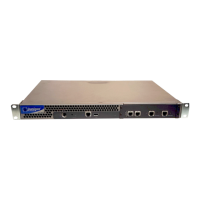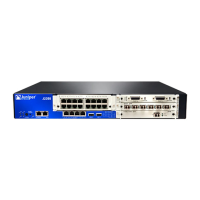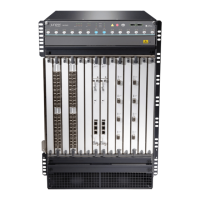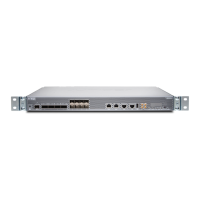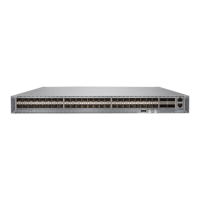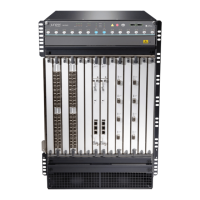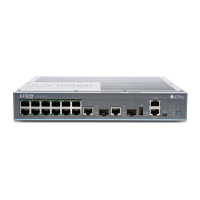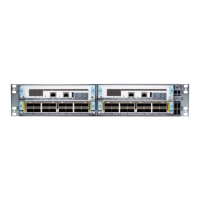}
}
}
}
}
Related
Documentation
Ethernet OAM•
• Ethernet Ring Protection on page 145
• Example: Viewing Ethernet Ring Protection Status—Normal Ring Operation on page 171
• Example: Viewing Ethernet Ring Protection Status—Ring Failure Condition on page 172
Example: Configuring Load Balancing Within Ethernet Ring Protection for MX Series
Routers
MX Series routers support Ethernet ring protection (ERP) to help achieve high reliability
and network stability. ERP is used in router or bridge networks to protect against link
failure. A single-ring topology is configured that uses one specific link called a ring
protection link (RPL) to protect the whole ring. When all links are up and running, the
RPL blocks traffic and remains idle. However, if a link fails, the RPL routes traffic to bypass
the failure on the ring.
MX Series routers now support ERP ring instances. Whereas traffic in a ring topology
follows the same path, traffic within a ring instance uses data channels to allow some
traffic to pass through one path while other traffic can follow a different one. Dividing
traffic in this way supports traffic load-balancing in the ring.
This example describes how to use ERP with ring instances to load-balance traffic while
still providing network protection from link failure:
•
Requirements on page 154
•
Overview and Topology on page 154
•
Configuration on page 157
•
Verification on page 166
Requirements
This example uses the following hardware and software components:
•
Two MX Series routers acting as core switches
•
One MX Series router acting as an aggregation switch
•
Junos OS Release 10.2 or later for MX Series routers
Overview and Topology
Figure 24 on page 155 displays the topology for this example. The topology contains three
MX Series routers. CS1 and CS2 act as core routers in the topology, and AS1 acts as an
aggregation switch. Each router has two ring instances, ring-1 and ring-2. All nodes on
Copyright © 2012, Juniper Networks, Inc.154
Junos OS 12.1 MX Series 3D Universal Edge Routers Solutions Guide
